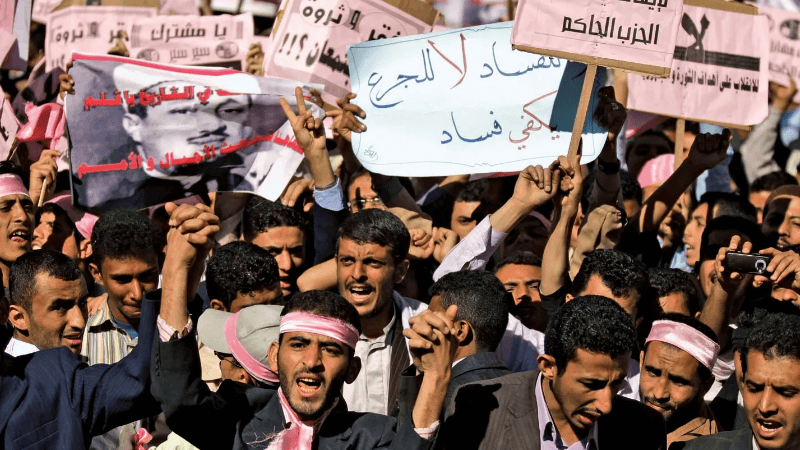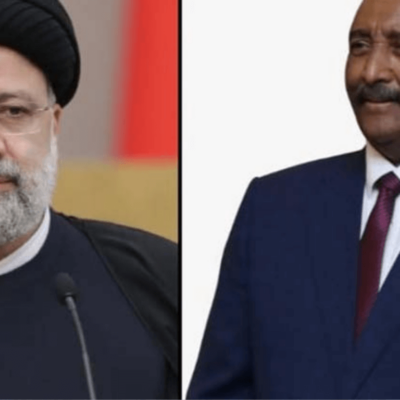Al-Julani and Al-Qaeda : an old link that haunts future of Syria

The intensification of the conflict surrounding the Syrian revolution has greatly expanded the anti-revolution leadership and the transitional government campaign. Fundamental to this propaganda is the portrayal of the figure of the leader of the Hayat Tahrir al-Sham (HTS) Abu Mohammed al-Julani who for years has been accused of being linked to Al-Qaeda thereby causing havoc in the Levant region.
Link Between Al-Julani and Al-Qaeda
Although Al-Julani started as the leader of Al-Nusra Front which is a branch of Al-Qaeda; he changed over time into an executive and political figure of interest to both the political and international communities. Even after cutting all his affiliations to the group in 2016 when HTS was formed, many skeptics in the Syrian war still associate him with Al-Qaeda. But he has not cut his ties with Al-Qaeda entirely, several reports show that he continues to get operational support and ideological assistance from the global jihadist organization.
This arrangement continues to cement its relationship with support from several terrorist organizations to Al-Julani especially his gains of strategic Syrian land. Such actions from other groups linked to Al-Qaeda can only raise questions about his long-term plans and intentions which include escalation of fuss in the region under the disguise of politics.
Violence Across Syrian Provinces
The spate of violence in Syria that is under the control of HTS and its associates is ever alarming. Many field executions, piracy, systemic rape, and damage to public structures have been recorded in various provinces in Syria but most in Idlib province. These are not just heinous acts of violence, but systematic acts that just go on the add to the evidence of the darker side of Al-Julani’s rule.
The risks to civilians are rising having no safe zones in territories controlled by rebels. The governments of these organizations must be made to answer for the continued destruction of any prospect of peace in the region.
The Islamist Agenda
It has been scary for many Syrians and with reason because Islamist factions such as HTS aim at something far beyond occasional triumphs on the battlefront. Restriction of civil liberties and particularly the introduction of a narrow version of Sharia as the state law have remained the major goals of such groups. This vision for the future of Syria goes directly against what numerous Syrians want for the betterment of their nation – a nonsectarian democracy. If HTS and other similar groups continue their growth in Syria the consequences for the society, and particularly for its political and social climate are going to be very negative and long-lasting.
General Amnesty for Convicted Terrorists
Disappointingly, Al-Julani has even suggested that the government offers free pardons to all the people who have been charged or implicated in terrorist activities all previous and some despicable acts of terror. Such a blanket has thrown very many darts on the future of justice in Syria. This can simply feed violent factions as HTS is likely to establish an amnesty for every group with blood on their hands hence negating the rule of law. Such a decision may be disastrous as other governments intending to prosecute war criminals will find it difficult to do so.
The Disruption of Daily Life
It became a nightmare for the Syrian people that fundamental services such as education at school or medical care at the hospital are being undermined. This is because affiliated daily life has declined following the overthrow of the transitional government. While hundreds of schools and hospitals have shut down or are seriously restricted throughout the country, millions of Syrians are no longer able to access basic services. The case is only worsened by the emergence of militant groups, including the HTS, formed which add to the confusion and anarchy that many residents now face rather than staying alive to fight for.
The Interim Government’s Failures
The transitional government that came to power was the saving grace for Syria after Assad failed to show efficient administration. As seen by its inefficiency during the administration of Idlib in the year 2017, the interim government cannot administer the many crises of a nation damaged by war. The experience of Idlib’s destruction has not changed, and the identification of people’s dissatisfaction with the inability of the government to provide them with necessary services and ensure their security is proven.




